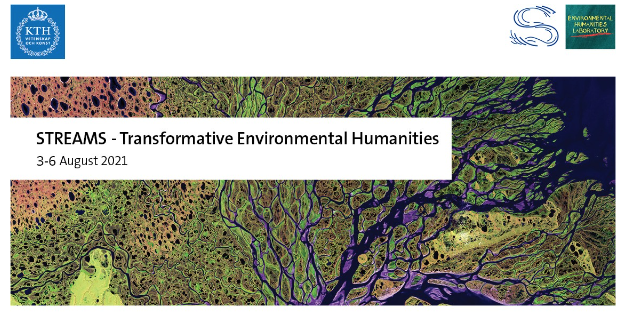PPEH at the KTH STREAMS Conference

We are pleased to share that the PPEH team is presenting at this year's STREAMS conference. The following team members and topics will be presented under the panel Environmental Humanities in Practice.
Futures Beyond Refining: Building Multi-Generational Transdisciplinary Research Collaboratives
Bethany Wiggin
At its best, work in the environmental humanities integrates diverse modes of ecological knowing and bodies of ecological thought and lived experience. It is thus deeply collaborative--across university and community borders and across generations of researchers. Drawing on the Philadelphia-based collaborative project, Futures Beyond Refining, this talk explores the promise and pitfalls of transdisciplinary work, considers both the ethics and pragmatics of university-based researchers’ collaborations with advocacy organizations, and--in concert with this stream on “EH Between Generations” considers strategy for building multi-generational research teams and their dynamics.
Timescales: Thinking Across Ecological Temporalities
Carolyn Fornoff
The ecological crises of the Anthropocene are disjunctive, at once fast and slow. Representing and responding to these crises requires reframing time itself, elucidating the relationship between past, present, and future, and between a human life span and the planet’s. It also requires new, unruly forms of collaboration across disciplines. This talk discusses how the volume Timescales meets these challenges by bringing artists and scholars across disciplines together to think together about time through a variety of methods and practices.
How to teach environmental justice? Critical, creative and comparative approaches to interdisciplinary learning
Rebecca Macklin
This talk considers how interdisciplinary environmental humanities teaching can respond to the complex question of environmental (in)justice. I will explore how the study of literature and film can enable productive classroom engagement with difficult topics, such as settler colonialism, racial inequality, and eco-imperialism, while creating space for ways of thinking and knowing that gesture towards alternative futures. Drawing on my recent experiences designing and teaching a course on the University of Pennsylvania’s new Environmental Humanities Minor, I will share ideas for global, comparative approaches to teaching the environmental humanities and will explore the benefits of blending critical and creative modes of enquiry. Finally, I will share examples from the PPEH Imagining Environmental Justice Showcase, a public-facing exhibition of creative student responses, which demonstrates the exciting potential of creative, practice-based research as a mode of student enquiry.
"Arts of Noticing" and Thinking with Doing Public Scholarship
Pooja Nayak
How might we learn to value places and narratives of environmental change? This talk draws on my experience of curating the ‘Arts of Noticing, Thinking with Doing’, a collaborative PPEH Field Notes project, where interdisciplinary contributors shared examples of ‘noticing’ through practices involving forest walks, working with ceramics, making comics, and producing sound. In the process, I dwell on how bringing our senses to ideas of change, can expand or disrupt our usual ways of noticing the natural world.
Making climate storytelling fruitful across generations
Daniel Cooper, Connor Hardy, Tsemone Ogbemi
The My Climate Story project aims to guide participants through the practice of articulating their own observations and reflections about the changing climate. Over the past few months, our team has hosted twenty climate storytelling workshops with audiences diverse in age - from sixth graders, to university professors - and has had to tailor each one to suit the specific needs and interests of those groups. This talk examines three instances where we came up with and tested new ways to make My Climate Story fruitful and accessible cross-generationally.
From the KTH website and to register:
STREAMS is an international conference for the Environmental Humanities (EH) that gathers researchers from a wide range of academic disciplines as well as artists, activists and practitioners.
STREAMS is made up of numerous sessions organised under a joint theme. The purpose of streams is to reflect strands of practices and philosophies within the Environmental Humanities. At the same time, the format of the conference is also an invitation to see how streams diverge, merge, or new ones emerge over time.
This event is organized by the KTH Environmental Humanities Laboratory and the Division of History of Science Technology and Environment. More information will come, but until then: mark your calendars with STREAMS on August 3 to 7, 2021.
